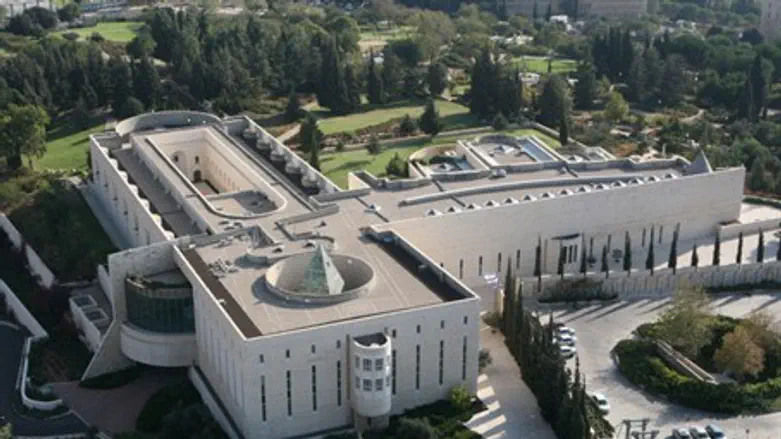
Rabbi and former Supreme Court justice Menachem Elon passed away Tuesday night at the age of 90. He will be buried at 4 p.m. Wednesday in Jerusalem’s Har Hamenuchot cemetery.
Elon was an Israel prize winner, a renowned expert on the subject of the applicability of Jewish Civil Law in the Jewish State, termed Mishpat Ivri in Hebrew, and was among the founders of a religious kibbutz.
He was born to a religious Jewish family in Dusseldorf, Germany, in 1923. His family fled Europe as the Nazis rose to power, arriving in Tel Aviv in 1935.
As a young man Menachem Elon studied in the Hevron Yeshiva. He was accepted at age 15 despite being younger than most students, and remained at the prestigious school for eight years, during which he was ordained as a rabbi by then Chief Rabbis Rabbi Yitzchak Isaac Halevy Herzog and Rabbi Ben-Tzion Meir Chai Uziel.
Although the Hevron yeshiva was non-Zionist, Rabbi Elon began to identify with the religious-Zionist movement, and took part in the creation of the religious kibbutz in the Beit Sha'an Valley, Tirat Tzvi.
After ending his yeshiva studies Elon earned a law degree from the Tel Aviv School of Law and Economics. During his years in college he helped to establish the pioneering religious boy's yeshiva high school Midreshiat Noam in Pardes Hanna and served for two years as a teacher there.
Following the War of Independence he worked as an IDF prosecutor. Then, from 1950-1951 he served as the secretary of the Knesset’s Finance Committee.
In the early 1950s he worked as an attorney in private practice while at the same time learning Talmud, Jewish history, and philosophy at Hebrew University in Jerusalem. In 1955 he began working in the Justice Ministry. In the same year he began a parallel career as a lecturer in Hebrew law at Hebrew University.
In 1959 he became an advisor on Hebrew law for the ministry, a job which included writing legal opinions based on Jewish law regarding every law proposed in Knesset. In 1962 he received a doctorate in law, receiving high marks. In 1963 he established the Institute for the Study of Jewish Civil Law (Mishpat Ivri).
Over the course of the years he served on committees to prepare legal proposals in various fields of civil law.
In 1973 he published a book on Jewish Civil Law (Mishpat Ivri) which is still considered one of the key works in the field. He went on to bring international recognition to the field, helping to bring the subject of Mishpat Ivri to New York University, Harvard and McGill.
In 1977 he was appointed to the Supreme Court. In 1988 he became the deputy president of the court, a role he held until his retirement in 1993.
During his term as a Supreme Court justice he continued his research work. In 1992, in honor of the 25th year since Jerusalem’s reunification in the Six Day War, he wrote the Jerusalem Convention, a declaration of Israel’s commitment to the city of Jerusalem.
